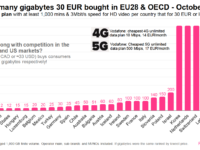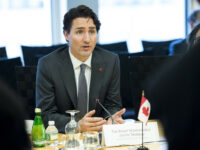The Federal Court of Canada has strongly rejected an attempt by Voltage Pictures, one of Canada’s most litigious copyright companies, to use a reverse class action lawsuit approach to sue potentially thousands of Canadians. The court ruled that Voltage met none of the requirements for class action certification and in the process confirmed doubts that merely pointing to an IP address is sufficient grounds for a copyright infringement claim. The Voltage strategy was launched in 2016 as it sought certification of the class, a declaration that each member of the class had infringed its copyright, an injunction stopping further infringement, damages, and costs of the legal proceedings (the issues were discussed in this Lawbytes podcast episode with James Plotkin).

Telecom by yum9me (CC BY-NC-ND 2.0) https://flic.kr/p/53jSy4
Telecom
Wireless Worsens: Report Finds Canadian Wireless Pricing Now Less Competitive Compared to Other Developed Economies
The cost of wireless services emerged as a political issue during the recent national election, with most parties taking turns promising measures to increase competitiveness and lower consumer costs. The Liberals based their platform on a commitment to reduce costs by 25 per cent over the next two years, a measure that some analysts suggested had already been met. I argued that the 25 per cent reduction target was measuring the wrong thing, noting that “the 25 per cent price decline may sound attractive, but if other countries experience declines of 30 per cent or 40 per cent, it means that Canadians would actually be paying even more relative to consumers elsewhere.”
What Comes Next for Canadian Digital Policy Under a Liberal Minority Government?
In the closing months of the last Liberal majority government mandate, I spoke to a government official about the lessons learned from the prior four years. Their response? If we knew then what we know now, we would have moved much faster on policy. The four years moves very quickly and if you don’t manage to lay the groundwork and introduce proposed legislation within the first 12 – 24 months, it becomes very difficult to enact given competing policy priorities, demands on committee time, Senate review, and a myriad of other challenges.
As I think about what comes next for Canadian digital policy under the new Liberal minority government, those words strike me as more relevant than ever. Even if the government runs more like a majority than a minority (which certainly seems likely on digital policy as no one is forcing an election over privacy or wireless pricing), the same ministers return to their portfolios (which may or may not happen) and the same committee structures return largely unchanged (which will not happen since that INDU chair Dan Ruimy was not re-elected), picking up where the government left off in June will not be easy. Further, the Liberal platform provides the roadmap for future reforms, but moving rapidly on these issues – particularly given expectations that a minority government’s mandate may run shorter than a majority – suggests that quick wins will be preferred to extensive legislative reform.
So what are likely next steps on digital policy?
The LawBytes Podcast, Episode 27: Digital Policy and Election 2019 – Laura Tribe of OpenMedia on Where the Parties Stand
Digital issues were expected to garner attention in the 2019 Canadian federal election campaign. Over the course of the past few weeks, all the main political parties have had something to say about the high cost of cellphone prices in Canada and the prospect of implementing new taxes on tech companies. Laura Tribe, the Executive Director of OpenMedia, joined the podcast to talk about election 2019 and digital policies in a conversation that focused on wireless services and Internet taxes as well as privacy, intermediary liability, trade, and copyright.
The LawBytes Podcast, Episode 26: There Is No Crisis – Dwayne Winseck on the State of Canadian Communications, Media and Cultural Policy
The future of Canadian communications law has emerged as political hot potato in recent weeks with political parties engaged in finger pointing over who is acting – or failing to act – on issues closely aligned to cultural policy. Just prior to the election call, Dwayne Winseck, a professor at Carleton who has been one of Canada’s most prominent experts on communications and cultural policy, joined the podcast to provide his take on the initial report from the Broadcasting and Telecommunications Legislative Review Panel, the tech-lash against companies such as Google and Facebook, and what the numbers tell us about the state of media and advertising in Canada.











